It’s all change
A few weeks ago, we shared the news that Mr Owen was moving on to a senior leadership position in a school in Manchester. Following a rigorous recruitment, Miss Needham (currently working in Year 2) has been offered a teaching position.
Since then, we’ve found out that there are going to be a few more changes in September…
Mr Parker has got a new job. As a new father, he has recently moved, and is currently travelling quite a long way each day. He’s now going to be working much nearer to home. He will be missed for many different reasons including leading the school football team and leading other members of staff in great phonics practice. That strong accent (you know what I mean) might mean that our phonics pronunciation changes totally!
Miss Rushbrooke is also starting a new job, again much closer to where she lives. She came to us very early in her career and has done a fabulous job teaching in Year 2, Year 6 and recently Year 4. She is a wonderful and caring teacher and has done a grand job transforming our library into an engaging space that children want to be in.
Finally, Mrs Freeman, who’s been a member of staff at Moortown for many years, is going to go and work in another school within Sphere Federation. Mrs Freeman is excited by a new challenge in a new school, and we’re delighted to still work alongside her in many ways.
Changes like this can be unsettling but at Moortown Primary, we’ve a history of successful recruitment that helps to keep our school a vibrant and forward-looking place to learn. (Indeed, when Mr Owen joined, it was alongside three other new recruits. When Miss Rushbrooke joined us, so too did two others.)
As well as Miss Needham starting as a newly qualified teacher in September, we also welcome two more new teachers:
- Mr McGriffiths, an experienced teacher currently based in London but returning to Leeds
- Miss Birch, currently working in a nearby school.
Some of you may also remember Mrs Lake, who worked here a few years ago. Mrs Lake is teaching in Year 1 at Scholes (Elmet) Primary at the moment – we’re delighted that she’ll be returning to share a class with Mrs Taylor next year.
We’re sure that you will join us in congratulating those who have new jobs and wishing them all the best for the future, and in welcoming the new members of our happy and healthy teaching team.
Week beginning 14 June 2021
Hi everyone
We hope you’re feeling happy and healthy at home. We miss having you in school but we want you to know that you’re still very much part of our school community. Enjoy your home learning for this week.
Maths
Follow this sequence of maths learning which is linked to fractions.
- Lesson 1: video, worksheet, answers
- Lesson 2: video, worksheet, answers
- Lesson 3: video, worksheet, answers
- Lesson 4: video, worksheet, answers
- Lesson 5: video, worksheet, answers
- Lesson 6: video, worksheet, answers
- Lesson 7: video, worksheet, answers
- Lesson 8: video, worksheet, answers
- Lesson 9: video, worksheet, answers
- Lesson 10: video, worksheet, answers
You don’t have to print the worksheet. Your child can write or draw their answers on paper. Your child’s learning will be most effective if you sit with them to pause the clip and check / praise / support your child as the clip moves on.
Practise times tables on Times Table Rockstars, too. If your child is in Y3, we’re concentrating on the 8 times table. If your child is in Y4, we’re concentrating on all times tables up to and including 12 x 12. Email the class teacher if you need your child’s login and password details.
(Suggested time: 30 minutes of Maths and 15 minutes of Rockstars daily)
Spelling
Look on the homework page to find this week’s spellings. They should choose some past spellings that they feel less confident with. Your child should complete one task each day.
- Day 1: Generate more words linked to the spelling pattern or ‘rule’. You could look out for the words in the book you’re reading at home, or any other text, like a website linked to our science topic of Living Things and their Habitat.
- Day 2: Practise the spellings using two of the ideas in our Super Spelling Strategies guide. (Set yourself and others at home a challenge of using some of the words when you’re speaking, too!)
- Day 3: Write separate sentences, each containing one of the spellings. (Don’t forget to show off really neat handwriting and make sure you sentence starts with a capital letter and ends with a full stop, exclamation mark (!) or question mark (?).
- Day 4: Repeat Task 2 or 3.
- Day 5: Get an adult at home to test you on your spellings. Practise any you spell incorrectly – you could write them out carefully until you’re sure.
(Suggested time: 15-20 minutes daily)
Reading fluency
This is the text we’re using in class this week to build up fluency skills.
In school, we generally follow this sequence:
- Day 1: Read the text aloud with your child listening. Read it clearly and slowly, pointing to each word as you read. Have a chat about any unfamiliar words.
- Day 2: Read aloud each sentence (a full short sentence or part of a longer sentence), and have your child read it back to you. Do this ‘echo reading’ for the whole text.
- Day 3: Read the text and talk about the effect of the punctuation on how you read it – pauses for full stops and expression for exclamations (!) or questions (?). Your child reads the text aloud.
- Day 4: Read together with expression (just like you practised on Day 3).
- Day 5: Your child reads independently and fluently.
(Suggested time: 15 minutes daily)
Reading comprehension
We’ll be using this RIC text in class to answer these questions to practise comprehension skills. RIC stands for:
- Retrieve: finding information in a text
- Interpret: using clues in the text to unlock information
- Choice: thinking about the author’s choice of words, techniques or organisation that make the text interesting and enjoyable to read
Follow these lessons from Oak National Academy. There’s a whole series of lessons, but start at Lesson 1 and work through, doing one (or maybe even two) each day. (If you’re self-isolating in your second week, stick with the series of lessons you’ve already started and aim to complete the full series.)
(Suggested time: 30 minutes daily)
Writing
Follow these lessons from Oak National Academy. There’s a whole series of lessons, but start at Lesson 1 and work through, doing one (or maybe even two) each day. (If you’re self-isolating in your second week, stick with the series of lessons you’ve already started and aim to complete the full series.)
(Suggested time: 30-40 minutes for each)
Topic
Our topic this half-term is about design & technology.
Follow these lessons from Oak National Academy. There’s a whole series of lessons, but start at Lesson 1 and work through, doing one (or maybe even two) each day. (If you’re self-isolating in your second week, stick with the series of lessons you’ve already started and aim to complete the full series.)
(Suggested time: 30-40 minutes)
Science
Our focus this half-term is about forces.
These six lessons from Oak National Academy link closely to what we’ve been doing in class. Start at Lesson 1 and work through, doing two or three in the week. If you’ve previously completed on of these lessons, have a go at the ones you haven’t completed yet.
If Science really motivates your child, you could also use look at these lessons all about practical Science.
(Suggested time: 30-45 minutes)
PE
Don’t forget to do some daily exercise!
Do two or three of these Five Minute Moves from Joe Wicks each day – spread them across the day as if they were playtimes, maybe!
Try working through this series of 25 lessons from the Association for Physical Education – do two or three in the week.
(Suggested time: 5 minutes daily, plus 30 minutes for the longer PE lessons)
Extra stuff…
As an extra (or as an alternative, if this helps to motivate your child)…
Fancy learning about a new religion? You don’t have to be religious to learn about, and appreciate, religions from all around the world. Check out this set of lessons from Oak National Academy – you could choose to focus on one religion or dip into each set for an overview.
What about some Living and Learning? While you’re away from school, you could check out these lessons on keeping safe!
Week beginning 14 June 2021
Hi everyone
We hope you’re feeling happy and healthy at home. We miss having you in school but we want you to know that you’re still very much part of our school community. Enjoy your home learning for this week.
Maths
Follow this sequence of maths learning which is linked to fractions.
- Lesson 1: video, worksheet, answers
- Lesson 2: video, worksheet, answers
- Lesson 3: video, worksheet, answers
- Lesson 4: video, worksheet, answers
- Lesson 5: video, worksheet, answers
- Lesson 6: video, worksheet, answers
- Lesson 7: video, worksheet, answers
- Lesson 8: video, worksheet, answers
- Lesson 9: video, worksheet, answers
- Lesson 10: video, worksheet, answers
You don’t have to print the worksheet. Your child can write or draw their answers on paper. Your child’s learning will be most effective if you sit with them to pause the clip and check / praise / support your child as the clip moves on.
Practise times tables on Times Table Rockstars, too. If your child is in Y3, we’re concentrating on the 8 times table. If your child is in Y4, we’re concentrating on all times tables up to and including 12 x 12. Email the class teacher if you need your child’s login and password details.
(Suggested time: 30 minutes of Maths and 15 minutes of Rockstars daily)
Spelling
Look on the homework page to find this week’s spellings. They should choose some past spellings that they feel less confident with. Your child should complete one task each day.
- Day 1: Generate more words linked to the spelling pattern or ‘rule’. You could look out for the words in the book you’re reading at home, or any other text, like a website linked to our science topic of Living Things and their Habitat.
- Day 2: Practise the spellings using two of the ideas in our Super Spelling Strategies guide. (Set yourself and others at home a challenge of using some of the words when you’re speaking, too!)
- Day 3: Write separate sentences, each containing one of the spellings. (Don’t forget to show off really neat handwriting and make sure you sentence starts with a capital letter and ends with a full stop, exclamation mark (!) or question mark (?).
- Day 4: Repeat Task 2 or 3.
- Day 5: Get an adult at home to test you on your spellings. Practise any you spell incorrectly – you could write them out carefully until you’re sure.
(Suggested time: 15-20 minutes daily)
Reading fluency
This is the text we’re using in class this week to build up fluency skills.
In school, we generally follow this sequence:
- Day 1: Read the text aloud with your child listening. Read it clearly and slowly, pointing to each word as you read. Have a chat about any unfamiliar words.
- Day 2: Read aloud each sentence (a full short sentence or part of a longer sentence), and have your child read it back to you. Do this ‘echo reading’ for the whole text.
- Day 3: Read the text and talk about the effect of the punctuation on how you read it – pauses for full stops and expression for exclamations (!) or questions (?). Your child reads the text aloud.
- Day 4: Read together with expression (just like you practised on Day 3).
- Day 5: Your child reads independently and fluently.
(Suggested time: 15 minutes daily)
Reading comprehension
- We’ll be using this RIC text in class to answer these questions to practise comprehension skills. RIC stands for:
- Retrieve: finding information in a text
- Interpret: using clues in the text to unlock information
- Choice: thinking about the author’s choice of words, techniques or organisation that make the text interesting and enjoyable to read
Follow these lessons from Oak National Academy. There’s a whole series of lessons, but start at Lesson 1 and work through, doing one (or maybe even two) each day. (If you’re self-isolating in your second week, stick with the series of lessons you’ve already started and aim to complete the full series.)
(Suggested time: 30 minutes daily)
Writing
Follow these lessons from Oak National Academy. There’s a whole series of lessons, but start at Lesson 1 and work through, doing one (or maybe even two) each day. (If you’re self-isolating in your second week, stick with the series of lessons you’ve already started and aim to complete the full series.)
(Suggested time: 30-40 minutes for each)
Topic
Our topic this half-term is about design & technology.
Follow these lessons from Oak National Academy. There’s a whole series of lessons, but start at Lesson 1 and work through, doing one (or maybe even two) each day. (If you’re self-isolating in your second week, stick with the series of lessons you’ve already started and aim to complete the full series.)
(Suggested time: 30-40 minutes)
Science
Our focus this half-term is about forces.
These six lessons from Oak National Academy link closely to what we’ve been doing in class. Start at Lesson 1 and work through, doing two or three in the week. If you’ve previously completed on of these lessons, have a go at the ones you haven’t completed yet.
If Science really motivates your child, you could also use look at these lessons all about practical Science.
(Suggested time: 30-45 minutes)
PE
Don’t forget to do some daily exercise!
Do two or three of these Five Minute Moves from Joe Wicks each day – spread them across the day as if they were playtimes, maybe!
Try working through this series of 25 lessons from the Association for Physical Education – do two or three in the week.
(Suggested time: 5 minutes daily, plus 30 minutes for the longer PE lessons)
Extra stuff…
As an extra (or as an alternative, if this helps to motivate your child)…
Fancy learning about a new religion? You don’t have to be religious to learn about, and appreciate, religions from all around the world. Check out this set of lessons from Oak National Academy – you could choose to focus on one religion or dip into each set for an overview.
What about some Living and Learning? While you’re away from school, you could check out these lessons on keeping safe!
This week’s message (Friday 28 May 2021)
And we’ve made it to the end of another week! Each Friday, Mrs Weekes and I sigh with relief because we’ve had no bubbles bursting…
…Thank you for helping us by respecting the national restrictions that have been in place, and the changes we’ve made in school. Since the start of the year, we’ve managed over 30 emails from Leeds Health and Safety team, each one typically involving about ten or so changes to our risk assessments. I’m grateful to Mrs Weekes for managing these updates each week.
Staying with the Covid theme for a moment…
Testing positive…?
We’ve been asked once again to support the government’s Test and Trace system.
If your child has been attending school this week, we need you to tell us if they get a positive Covid test result in the period Saturday 29 May to Thursday 03 June 2021. We need you to do this because your child may have been infectious whilst in school.
So you can give us all the information we need, please use this form or scan this QR code (hover over it with the camera on – a link should appear):
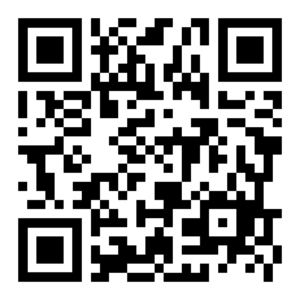
This means we’ll have the information to take the necessary actions, laid down by the Department for Education.
We’d prefer you to use the online form, but if the technology fails you, please contact school: moortownheadofschool@spherefederation.org
If your child receives a positive test result after Thursday 03 June, you can tell us on the first day of the new term (Monday 07 June).
CyberSprinters
CyberSprinters is a free interactive game developed by the National Cyber Security Centre (NCSC) – a part of GCHQ – aimed at 7 to 11-year-olds. It’s designed to make learning about cyber security fun and interactive at a time when children might begin to seek more independence online.
The online game sees players become a ‘CyberSprinter’ who’s racing against its own depleting battery power. Users can win battery power by correctly answering questions about cyber security but face losing it if they bump into ‘cybervillains’.
Year 6 residential
We were so happy to be one of the first schools to have arranged one of the first residential trips for over a year! Last week, some of our Year 6 pupils enjoyed a week away, taking part in outdoor and adventurous activities and developing independence and team-work skills. Those who went, a mix of children from Scholes and Moortown, had a great time. Very many thanks to all the adults who went along to support, and to Mrs Weekes (Moortown Head of School) and Miss Hague (Scholes Head of School) for organising this valuable, worthwhile trip away.
Uniform
It’s been easy to let some routines and expectations become a bit slack in the last year. Now that lockdown’s easing, we want to tighten up on a few things related to uniform:
- long hair should be tied back – it really does affect learning (for example, when children have to keep moving hair away from their face as they lean forwards to write)
- earrings should be small, plain studs
- PE kit, worn on PE days, should be white t-shirt, black shorts / tracksuit bottoms and plain trainers
At Moortown Primary School, we’re proud to be members of our school community and we want all our children to feel part of our community and to represent our school. Wearing the school uniform helps us to do this. Read our full policy.
Have a happy and healthy half-term holiday… Let’s hope the sun shines a bit more than in recent weeks.
Computing: decomposition
In our computing lessons, we’ve been creating a game using Scratch Jr.
The children had to use decomposition to break the task into smaller more manageable steps . They then worked through each step, using logical reasoning to solve problems and fix bugs.
They were then able to challenge themselves in lots of different ways. For example, by adding different levels, tinkering to make their games the correct difficulty, developing it into a two player game.
Herd Farm
We had an absolute blast on Wednesday and Thursday at Herd Farm.
Of course, it wasn’t the same as staying over for two days but a few weeks ago we weren’t expecting we’d be able to go at all. A big thank you to Mrs Weekes for making it happen! And a big thanks to Herd Farm for letting us be their first school visit in over a year!
We were all really impressed with the children and it was lovely to see them having so much fun over the two days. They showed off so many different attributes: courage, resilience, nerve, teamwork, empathy. There were so many highlights from the two days. Here’s a selection of photos from the trip…






















Captain Tom 100 Challenge
On Tuesday 04 May, we all took part in the ‘Captain Tom 100 Challenge’. There were 100 handprints, 100 laps, 10o baskets scored, 100 goals scored and 100 skips. Thanks to everyone who donated and took part; all the money raised will go to our chosen school charity, Dogs Trust. Watch this space for the total amount raised.
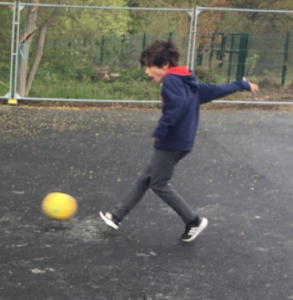
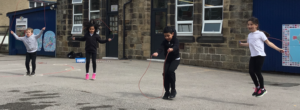
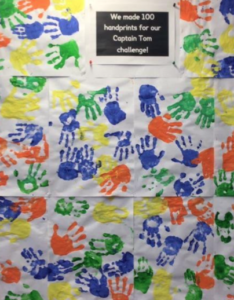
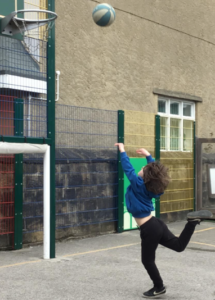
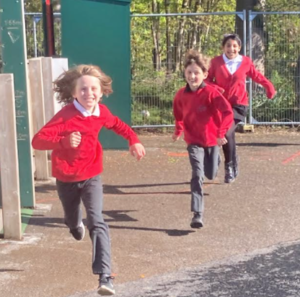
Living and Learning: Sun Safety
Year 2 have been learning about about sun safety in our living and learning session this week. We have been reading the text below daily to help us know how to reduce the risk of sun damage. 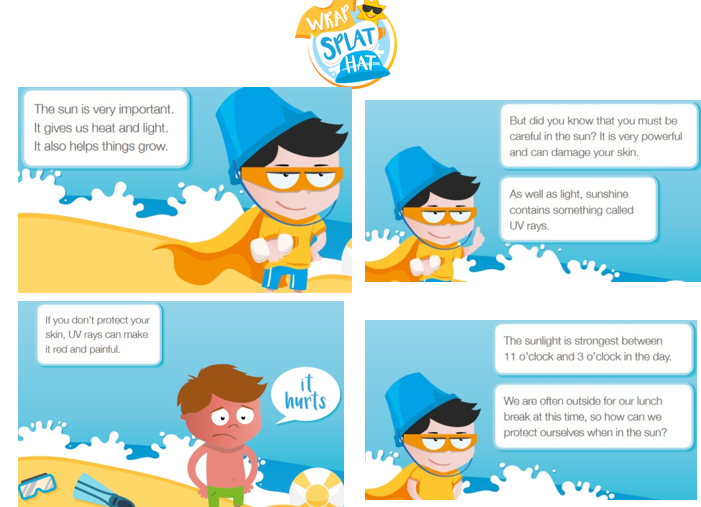
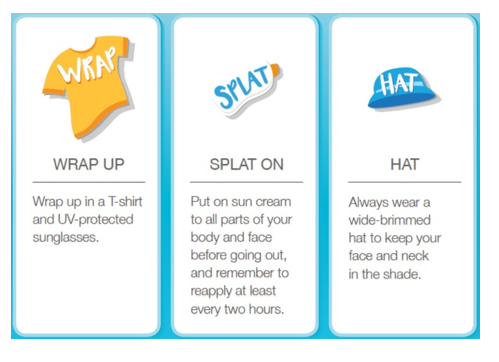
The children used the text to create posters. We are going to to stick them on our living and learning display to help us remember how to stay safe in the sun.
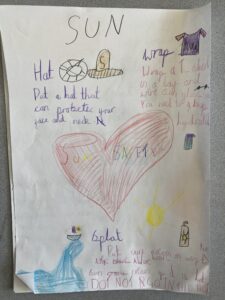
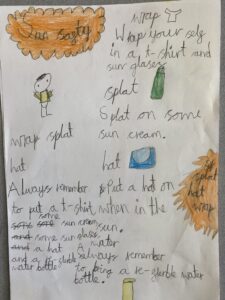
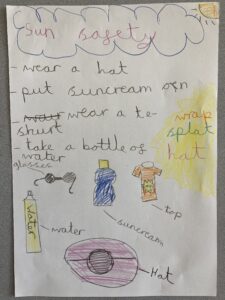
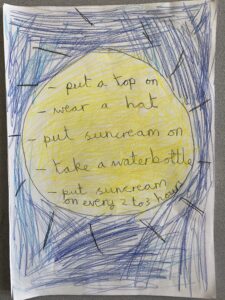
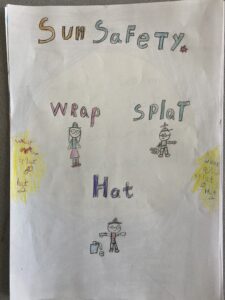
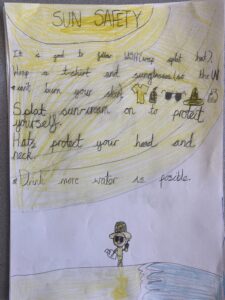
test
test
Litter Picking Legends
Last week, these legends saw something wrong in their community and decided to do something about it.
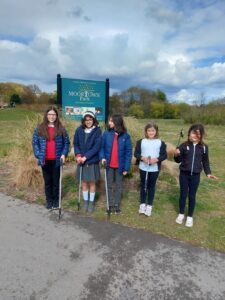
They grabbed gloves, litter pickers and bin bags and headed to Moortown Park – the rubbish laying all around had really put them off their last visit and they wanted to make a change.

They managed to clear up so much waste and they perfectly demonstrated our right to use the park as long as we have the responsibility to clean up afterwards.
Well done, litter picking legends. Y6 are very proud of you!


